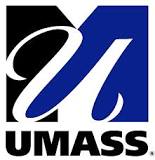Vitamin D and Residual Beta-Cell Function in Type 1 Diabetes
| Status: | Recruiting |
|---|---|
| Conditions: | Diabetes, Diabetes |
| Therapuetic Areas: | Endocrinology |
| Healthy: | No |
| Age Range: | 10 - 21 |
| Updated: | 6/23/2018 |
| Start Date: | October 19, 2017 |
| End Date: | July 31, 2020 |
| Contact: | Benjamin U Nwosu, M.D. |
| Email: | Benjamin.Nwosu@umassmemorial.org |
| Phone: | 5083347872 |
This project is designed to study the role of vitamin D supplementation on the honeymoon
phase of type 1 diabetes in children who are on standardized insulin treatment. The results
could lead to significant changes in the approach to the early phase of type 1 diabetes with
a strong emphasis on prolonging the honeymoon phase by using vitamin D and maintaining these
patients on a standardized insulin regimen. The overall goal is to reduce the long-term
complications of type 1 diabetes.
phase of type 1 diabetes in children who are on standardized insulin treatment. The results
could lead to significant changes in the approach to the early phase of type 1 diabetes with
a strong emphasis on prolonging the honeymoon phase by using vitamin D and maintaining these
patients on a standardized insulin regimen. The overall goal is to reduce the long-term
complications of type 1 diabetes.
Prolonging the duration of the partial clinical remission (PCR), or 'honeymoon' phase, of
type 1 diabetes (T1D) improves glycemic control and reduces long-term complications. Recent
studies suggest the exciting possibility that vitamin D supplementation, a safe and
easy-to-implement therapy in children, may lengthen PCR and increase residual beta cell
function (RBCF).
However, existing studies employed a suboptimal vitamin D dose or lacked a standardized
insulin treatment protocol, precluding solid conclusions and preventing the field from moving
forward with translation to clinical practice. This trial's rationale is to securely
establish the effect of an adequate dose of vitamin D on PCR and RBCF.
We hypothesize that vitamin D will increase RBCF and prolong PCR. The primary aim is to
determine the effect of adjunctive vitamin D on RBCF and PCR in youth with T1D maintained on
a standardized insulin protocol. We propose a 12-month randomized, double-blind,
placebo-controlled, parallel design trial of ergocalciferol vs. placebo in 40 subjects of
10-21 years with newly-diagnosed T1D. The primary outcome is the change over time in
stimulated C-peptide (a measure of RBCF). Secondary outcomes include change over time in
insulin-dose-adjusted-hemoglobin-A1c (HbA1c) (IDAA1C; a measure of PCR), HbA1c, and total
daily dose of insulin. Mechanistic studies will explore whether beneficial effects of vitamin
D are associated with increased GLP-1 levels or decreased inflammatory markers, and whether
response to vitamin D is impacted by T1D-risk polymorphisms. If our hypotheses are true,
these findings may completely alter the approach to the early management of T1D, with strong
emphasis on prolonging the honeymoon phase using a readily available and easily affordable
vitamin D while maintaining these patients on a standardized insulin treatment regimen.
type 1 diabetes (T1D) improves glycemic control and reduces long-term complications. Recent
studies suggest the exciting possibility that vitamin D supplementation, a safe and
easy-to-implement therapy in children, may lengthen PCR and increase residual beta cell
function (RBCF).
However, existing studies employed a suboptimal vitamin D dose or lacked a standardized
insulin treatment protocol, precluding solid conclusions and preventing the field from moving
forward with translation to clinical practice. This trial's rationale is to securely
establish the effect of an adequate dose of vitamin D on PCR and RBCF.
We hypothesize that vitamin D will increase RBCF and prolong PCR. The primary aim is to
determine the effect of adjunctive vitamin D on RBCF and PCR in youth with T1D maintained on
a standardized insulin protocol. We propose a 12-month randomized, double-blind,
placebo-controlled, parallel design trial of ergocalciferol vs. placebo in 40 subjects of
10-21 years with newly-diagnosed T1D. The primary outcome is the change over time in
stimulated C-peptide (a measure of RBCF). Secondary outcomes include change over time in
insulin-dose-adjusted-hemoglobin-A1c (HbA1c) (IDAA1C; a measure of PCR), HbA1c, and total
daily dose of insulin. Mechanistic studies will explore whether beneficial effects of vitamin
D are associated with increased GLP-1 levels or decreased inflammatory markers, and whether
response to vitamin D is impacted by T1D-risk polymorphisms. If our hypotheses are true,
these findings may completely alter the approach to the early management of T1D, with strong
emphasis on prolonging the honeymoon phase using a readily available and easily affordable
vitamin D while maintaining these patients on a standardized insulin treatment regimen.
Inclusion Criteria:
1. Age: 10-21 years.
2. Sex: male and female subjects will be enrolled.
3. Tanner stage: I-V.
4. T1D duration of <3 months (i.e., from first insulin injection) to ensure the inclusion
of patients in PCR.
5. Presence of at least one diabetes-associated autoantibody.
6. Normal-weight, overweight-, and obese subjects with T1D
7. Fasting serum C-peptide level of >0.1 nmol/L (0.3 ng/mL)1; or 2-hour post-meal
stimulated C-peptide level of 0.2 nmol/L (≥0.6 ng/mL).
Exclusion Criteria:
1. Subjects on weight altering medications, such as orlistat.
2. Subjects with eating disorders
3. Subjects on medications other than insulin that can affect blood glucose level.
4. Subjects with 25-hydroxyvitamin D [25(OH)D] levels of >70 ng/mL, as this may lead to
vitamin D toxicity in the study subjects.
5. Subjects with systemic diseases other than T1D.
6. Subjects with recurrent diabetic ketoacidosis (>2 episodes since the diagnosis of T1D
or in the preceding 3 months); or >2 episodes of severe hypoglycemia in the preceding
3 mo.
7. Pregnant or breast-feeding female subjects.
8. The receipt of any investigational drug within 6 months prior to this trial.
9. Active malignant neoplasm.
We found this trial at
1
site
55 N Lake Ave
Worcester, Massachusetts 01655
Worcester, Massachusetts 01655
(508) 856-8989

Phone: 508-856-2828
Univ of Massachusetts Med School As the commonwealth's only public medical school, we take seriously...
Click here to add this to my saved trials